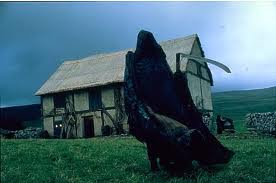Maybe something was lost in translation, but Prof. Christian Gerloff, Head of Neurology at the Hamburg-Eppendorf University Hospital (UKE), told the annual congress of the German Society for Neurology in Wiesbade on Sept. 28, 2011, that despite their life-threatening infection, most E. coli O104-in-raw-sprouts patients have recovered well from the summer’s epidemic.
The professor described how the wave of illness, caused by contaminated bean sprouts, was new territory for neurology. The neurology department had to help "in the crisis management of an  epidemic for the first time."
epidemic for the first time."
According to the Robert Koch Institute, almost 3,500 EHEC cases were registered in Germany between May and July 2011. 50 patients, who were infected with the aggressive intestinal germ, .jpeg) died of the disease.
died of the disease.
Gerloff stated that, of the around 100 patients who were treated for the most intense course of the disease, only three are still displaying symptoms, such as paralysis or lalopathy. He explained that everyone else has recovered very well.
In each case, the illness began with diarrhea. However, every third patient was also hit by a life-threatening kidney failure –hemolytic-uremic syndrome (HUS). In addition, every sixth patient developed acute neurological disorders; in some cases seizures, in other cases epileptic fits, said Gerloff. "Patients fell into a coma within a few days."
Gerloff also reported that some EHEC cases resulted in neurological disorders without HUS. As such, the disorders do not always relate to the kidney failure.

